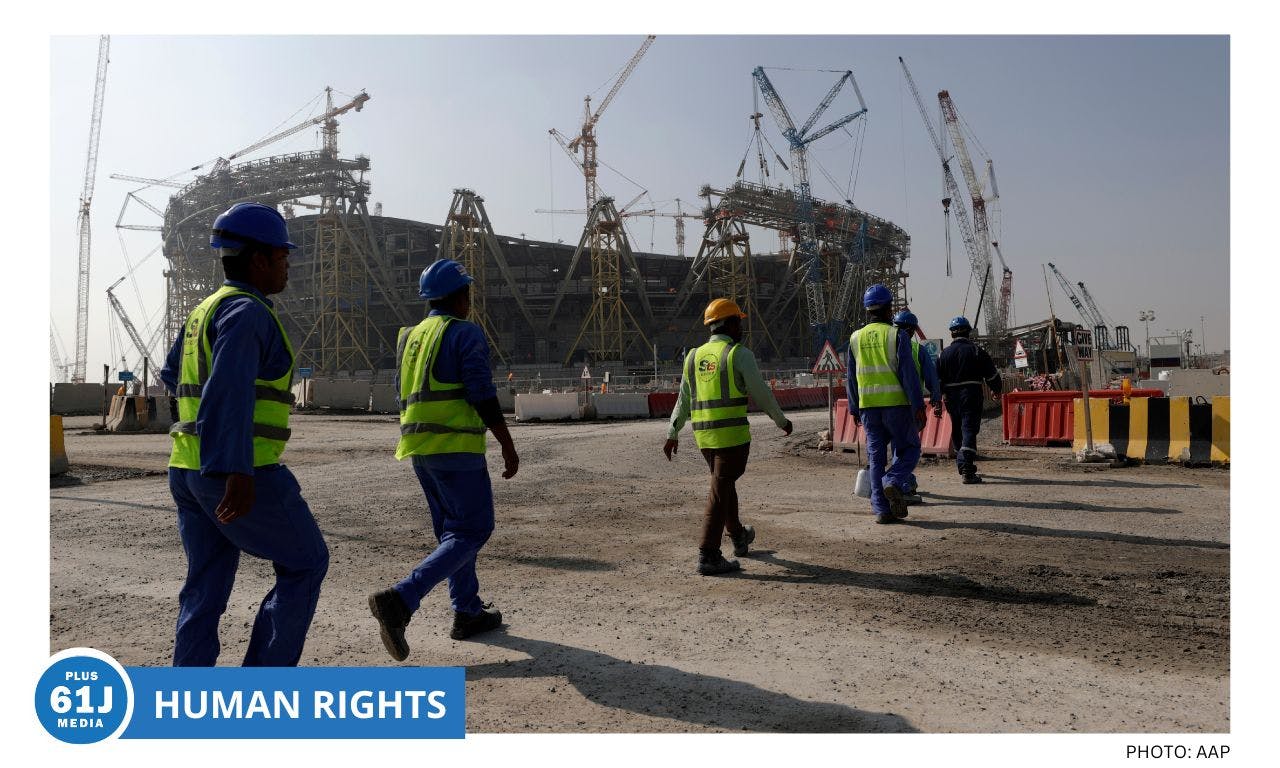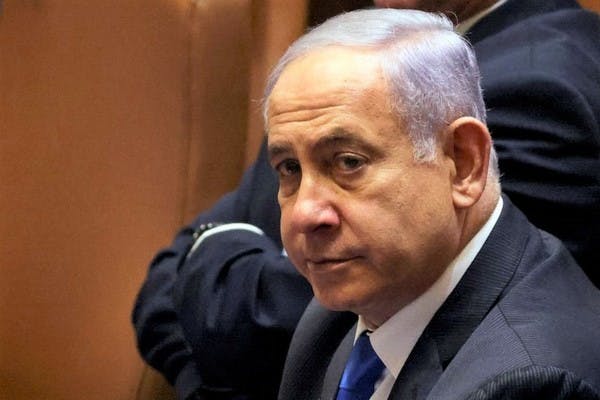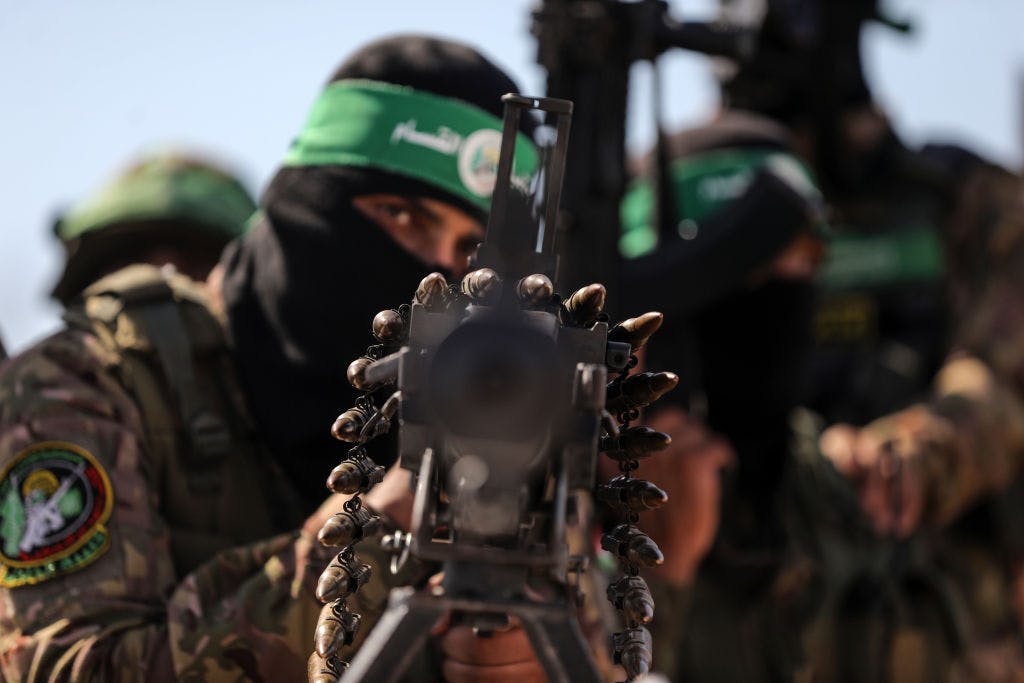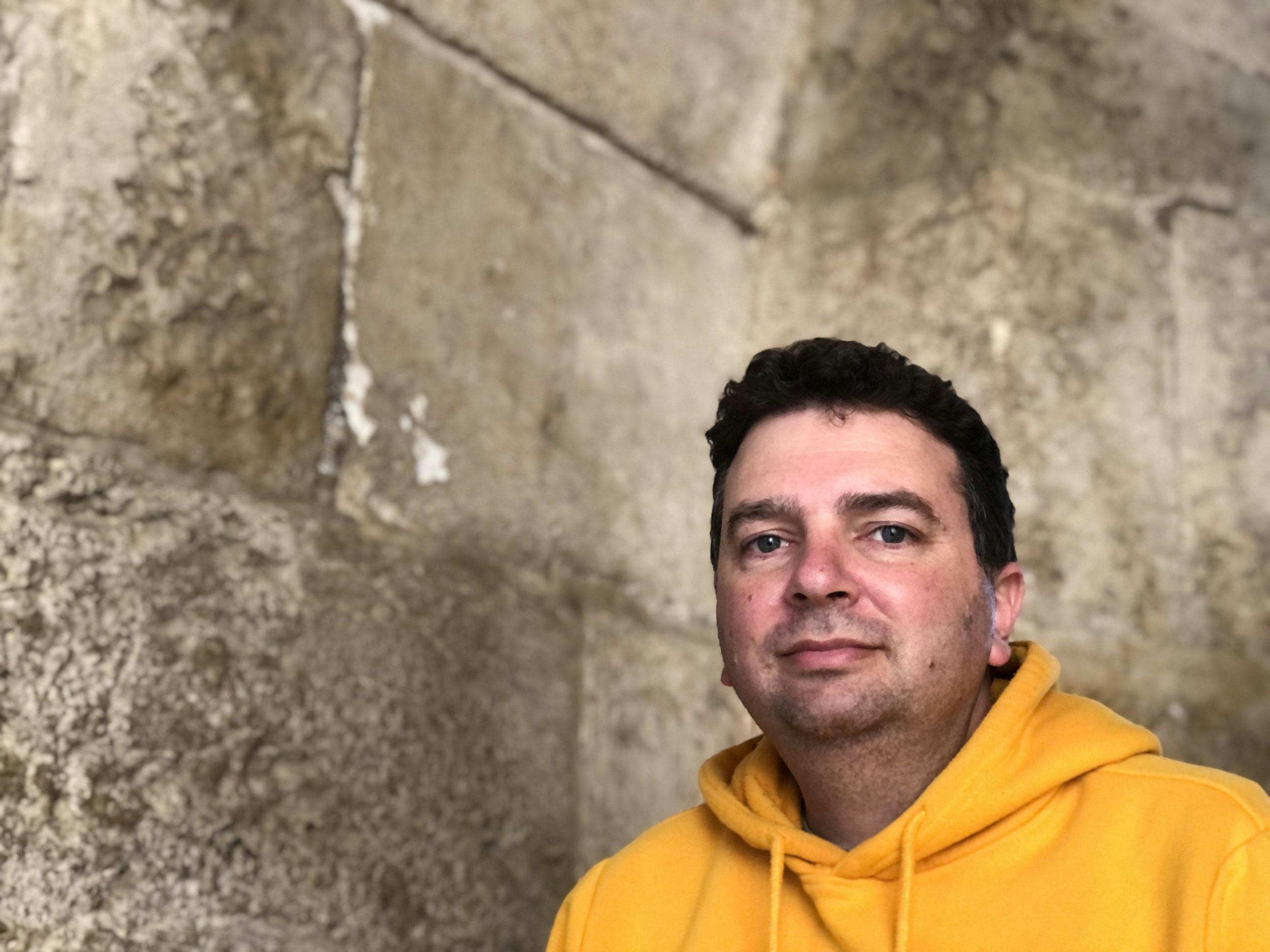Published: 4 November 2022
Last updated: 5 March 2024
The Socceroos’ statement calling attention to the World Cup host nation’s behaviour is worthy, but the world has had years to act. Qatar is a lesson in the arbitrariness and inadequacies of human rights protests.
Australia’s national football team, the Socceroos, last week issued a statement of protest about the host nation Qatar’s human rights record, specifically criticising its treatment of migrant workers and LGBTQ+ people.
The game’s governing body Football Australia also released a statement saying the "suffering" felt by workers and their families caused by the tournament "cannot be ignored".
It’s a worthy sentiment, more so because Australia is the first finalist to speak out. With the World Cup now less than a month away, it’s a small enough gesture to make it easy for other football nations to speak out.
A few weeks earlier, Craig Foster, the former Socceroo and TV commentator who has become a voice of social conscience, said he had decided to work on the SBS broadcast because he believes he can ventilate the issue better by being “inside the tent” rather than on the periphery. But he did say he will only do it from Australia; Foster doesn’t want to give Qatar any of his coin.
Again, like the Socceroos, Foster is sincere and his inspirational campaign three years ago to save the Bahraini footballer Hakeem al-Araibi from a Thai prison endows his statements with genuine credibility.
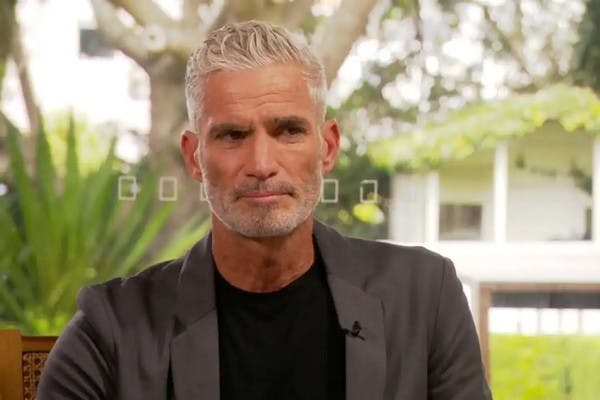
But really, to what end? To make the world aware of what’s been going on in Qatar?
The corruption and bribery behind its successful bid in 2009 to host the event has been well documented and the Guardian’s revelation that 6500 migrant workers had died while working on construction of the stadiums was published more than 18 months ago.
And the world has long known about Qatar’s treatment of its massive migrant worker community, 88% of the total population, which has been characterised by shocking work safety regulations, protracted and underpayment of wages and general indifference to their wellbeing. This had been reported on by journalists and human rights groups well before the Guardian story.
Political posturing around sporting events without follow-through has a bad record. Think of the torch relay protests before the 2008 Beijing Olympics, when activists used the international spotlight to highlight China’s brutal repression of the Uighurs. An eruption of activity just before the Games, but the protests died away as soon as they were over – and the Uighurs’ plight has gone from awful to sickening.
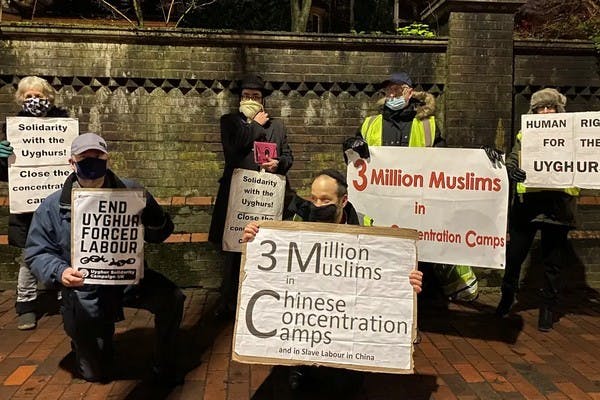
For this global sporting event, no-one has been prepared to mount a vocal campaign or take tangible steps to protest. Well, that’s not strictly true. A number of French cities have said they won’t broadcast the matches in the public fan zones in protest. And the Danes are going to wear muted colours on their jerseys.
So why such passivity and indifference from NGOs and advocacy groups?
Maybe Qatar is not familiar enough, and potential critics are indifferent to whether it’s a good or bad global citizen. Compare the weak protests against Qatar with the speed with which outrage and protest is expressed against Israel.
As the lone democracy in the Middle East, Israel has allowed the world’s media open access to report, photograph and video what happens there since it was established.
It could be that everyone loves 'the world game' and the World Cup too much. They don’t want to spoil the party.
The world has been able to read and see, in graphic detail, increasingly in real time, the violence and conflicts that occur. When you can watch endless footage at the click of a button, it’s very easy to be moved to act in response to the vision before your eyes. The critical scrutiny of Israel’s occupation of the Palestinians has been based on the ability of media and NGOs to report freely on what they see and hear.
How many people have seen footage of what’s been happening in Qatar, China, and other countries guilty of extreme human rights violations?
Or perhaps it’s because of the unique status occupied by football. It could be that everyone loves “the world game” and the World Cup too much. They don’t want to spoil the party. Football fans will tolerate most injustices, even obvious corruption, just to be able to see and cheer on their team.
I went to Russia in 2018, along with hundreds of thousands of others, turning a blind eye to everything I knew about Putin, his repression of dissent, the oligarchs, the rigged bid to host the event, and more. It was a memorable experience.
Israel, which has been targeted chronically with calls for boycotts over cultural and economic activities, has been left largely untouched in the world of sport.
Israeli football club Maccabi Haifa is currently hosting UEFA Champions League games; the Arab CEO of Paris St Germain hosted the chair of Maccabi Haifa and apologised for not coming to Israel to see one of their fixtures. In 2011 FIFA voted Israel as host of the 2013 UEFA European Under-21 Championship; the event went ahead without incident.
Boycotts are often more about virtue-signalling, a demonstration of "moral character", than making an effective difference for the victims they are trying to support.
Europe’s top basketball league has been hosted in Israel for decades with no issues. In September Israel hosted an ATP event in Tel Aviv, following the suspension of the regular event in St Petersburg over Russia’s invasion of Ukraine.
The only exception that springs to mind has been a BDS call over the past four year to “Boycott PUMA”, the German sportswear manufacturer that is one of the main sponsors of the Israeli Football Association.
The BDS call, which has gained limited support, is based on the argument that FIFA, having accepted the Palestinian Football Association (PFA) as a member in 1998, has allowed Israeli clubs to continue functioning in the PFA’s jurisdiction, thus suppressing Palestinian football.
By contrast, there are countless examples of the isolation of Israel in the cultural and economic spheres. Some that spring to mind include the Sydney Festival boycott, calls to boycott Israeli films, West Bank-produced wines, and the 2019 Eurovision Song Contest when Israel won the right to host it.

The BDS movement – repugnant to many Jews and Israel supporters because it refuses to commit to a two-state future - has succeeded in putting the occupation under a constant spotlight, and captured many young Western liberal hearts over the past 20 years. But it has had no significant economic or diplomatic impact on Israel, as Ronnie Olesker observed in an article for The Jewish Independent earlier this year.
Boycotts are often more about virtue-signalling, a demonstration of “moral character”, than making an effective difference for the victims they are trying to support. They are used selectively and arbitrarily and although they do play a role in raising awareness about an issue, have generally been unhelpful in achieving change.
Which brings us back to Qatar and the World Cup. Hats off to the Socceroos for speaking out. Will they translate words into action, like refusing to shake the hands of Qatari officials before and after matches? Will their statement spark others to follow suit, or go further? It would be good for the game of football and a signal that people do care.
But right now, it feels like a penalty kick that's destined to sail over the crossbar and into the crowd.
Photo: Workers walk to the Lusail Stadium, one of the 2022 World Cup stadiums, in Lusail, Qatar, 2019 (AP/Hassan Ammar)
